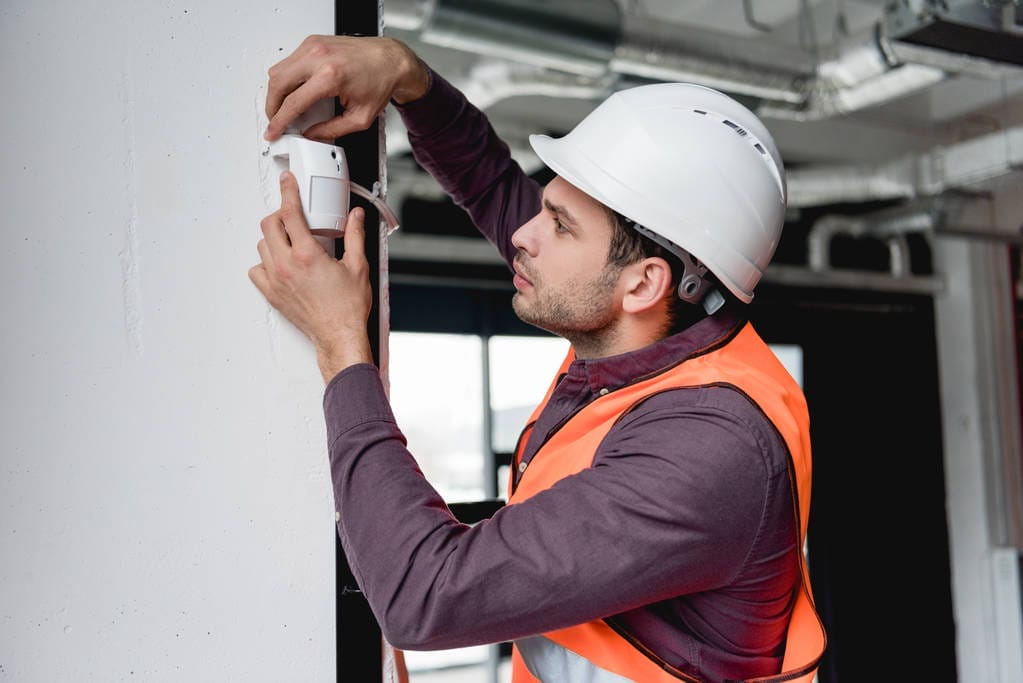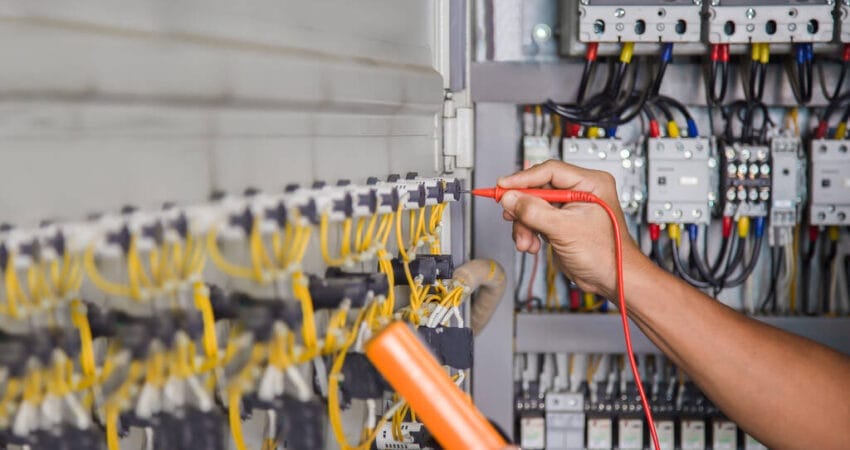Offices are efficient by design, but safety should not be left out of design. Perhaps the most overlooked aspect of workplace safety is electrical system design. In an office setting or high-traffic retail environment, poor electrical planning can increase the potential for fire, threatening people, assets, and business continuity.
Good electrical system design is not plugs and lights—it’s designing a facility in which operations can run on a day-to-day basis safely and efficiently without the threat of electrical accidents looming. Fire prevention becomes an integral part of the initial design and routine maintenance plan when it is incorporated in, securing working environments and making them more robust.
Fire Risks in Commercial Electrical Installations
Commercial property electrical fires are the result of a myriad of reasons. Faulty wiring, overloaded circuits, and old electrical gear are typical culprits. Poor design layout and appliance abuse also create overheating and short circuits.
Shared risks are:
- Overloaded power boards or extension leads
- Inadequately ventilated electrical enclosures
- Old switchboards without modern safety equipment
- Incorrect grounding systems
- Cables located close to flammable substances
Having these in mind in the system’s design allows fire risk to be dealt with preventatively.
Basic Principles of Fire-Safe Electrical Design
Designing the electrical infrastructure in a way that minimises fire risk begins with an understanding of the space and the manner in which it will be utilised. Licensed electricians and electrical engineers work together to design wire, load distribution, and protective features that will be optimal for the building.
Some major principles are:
- Load Balancing: Designing circuits in a way that they are able to handle the electrical load of appliances and devices reduces overheating risks.
- Appropriate Cable Choice: Insulating material and fire-resistant cables minimise the possibility of cable failure through stress or heat.
- Circuit Protection: Circuit breakers, residual current devices (RCDs), and surge protectors are fitted to protect against overloads and faults to different extents.
- Clear Labelling and Accessibility: Proper labelling of switchboards and isolators allows quicker response in the event of an emergency and simpler maintenance.
- Periodic Refurbishments and Inspections: Periodic inspections of the system identify worn parts and areas needing refurbishment in a bid to achieve changing standards of safety.
The best electrician eastern suburbs Sydney has to offer can offer this type of service and guidance to commercial property owners, offering compliance and peace of mind.

The Significance of Cleanliness in Avoiding Electrical Fires
Cleanliness is not necessarily the first thing to think of when it comes to electrical safety, but dust and debris can cause fire hazards—especially in commercial settings where equipment is constantly running and airflow is minimal.
Electrical switchboards, ceiling voids, and electrical rooms should be free from combustible material accumulations. Industrial vacuum cleaners with proper filtration are usually used in maintenance. For example, Nilfisk Vacuum cleaners bags are popular with cleaning personnel for trapping fine dust particles without allowing them to escape back into the environment. This attention prevents dust from accumulating on electrical equipment, which could cause short circuits or smouldering fires.
Planning for Future Load Requirements
Workplace conditions evolve, and so too do their electrical needs. A system ideal for today might not meet needs come next year with the addition of new equipment or technology. Futurism is a key part of fire-safe design.
In order to facilitate future modification without compromising safety:
- Utilise flexible conduit systems to allow for more wiring
- Fit more circuits in initial installations
- Allocate reserve capacity in switchboards
- Consider smart meters and monitoring systems that track usage patterns
Doing it this way in advance eliminates the temptation to use dodgy shortcuts later—like daisy-chained power boards or unauthorised installations.
Empowering Staff Through Awareness
Even the most well-intentioned electrical system needs to be used sensibly. Staff training is an important line of defence against the hazard of fire. Staff should be capable to:
- Look out for signs such as buzzing plugs, burning odors, or dimmed light
- Do not overburden sockets with multiple devices
- Report any faults or damage immediately
- Use electric cleaning devices safely and maintain power points clear of obstruction
Good signage, brief training sessions, and simple reporting systems go a long way in reducing avoidable accidents.
Electrical Safety as a Culture, Not a Checklist
It’s about bringing safety into everything the company does—not just checking compliance boxes. An electrical safety-oriented workplace, properly designed and properly maintained, and with engaged employees, creates a culture where hazards simply aren’t there.
It’s not just about locking up assets—it’s about respecting the individuals who enter the building on a daily basis. Doing it right the first time lays the groundwork for a healthier, safer working environment for everyone.
